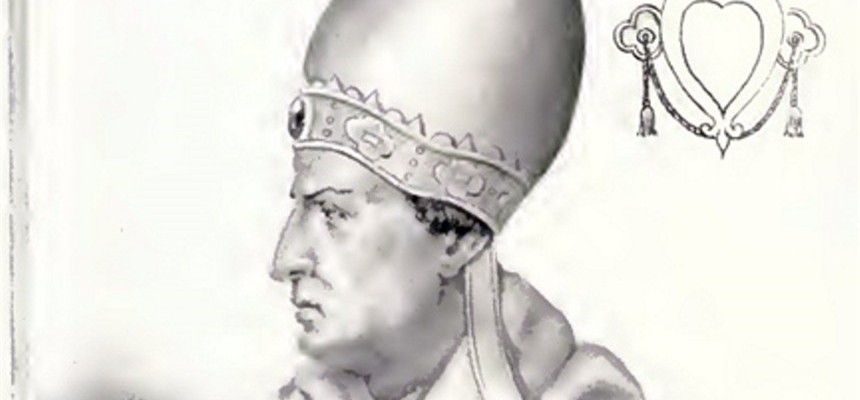
The “Dark Ages”, as the 800s and 900s tend to be called, were partially the result of a sense of self-entitlement on the part of the papacy and the ruling class. Everyone was in it for themselves, taking whatever could be obtained and rejecting others as pawns to be used. One of the outstanding men who achieved the papacy and did not work simply for his own comfort was Pope Benedict IV.
Born in Rome around 840, Benedict was the son of a Roman patrician, Mammalus. He was ordained by Pope Formosus (891-896). If you remember, Pope Stephen canceled all the ordinations of Formosus, making a mess of the Roman clergy. The succeeding popes held synods to re-approve the ordinations, then re-cancel the ordinations, until no one knew who, of those ordained by Formosus, was absolutely a priest or not.
Benedict was admired for his high birth (he was rich and noble), his generosity (he was rich), his zeal for public good (he might be manipulated). Sounds like a political election. But he carried himself with gravity and constancy.
One of his first actions, when Benedict was consecrated in February 900, was to call a synod to continue the rehabilitation of the papacy of Formosus and guarantee his own ordination.
During his short term, Benedict was able to help some of the dioceses. He supported Argrim in a disputed election for bishop of Langres. He upheld the election of Stephen, bishop of Naples. And he aided Malacenus, the bishop of Amasia, Turkey, who was driven from his see by the Saracens.
The same year, Count Baldwin II of Flanders, busy accumulating land, took over the area near Reims. This area contained the important Abbey of St. Yaast. This area also included Archbishop Fulk of Reims, a politically active archbishop. So, Baldwin had Fulk assassinated. Hearing this, Benedict excommunicated Baldwin.
The next year, Berengar of Friuli, acting king of Italy, lost favor with the nobles of northern Italy. He could not handle the wild Magyars invading from the Ural Mountain area, nor could he rule competently. They all backed Louis of Provence as the new king. Benedict crowned Louis as King Louis III, thus having a powerful protector.
However, Louis could not handle the Magyar invasion, either. Within a year, the northern Italian nobles reversed their commitments and turned again to Berengar. With a large army, the ex-king defeated Louis III and forced him to return to Provence. Now, Benedict had to deal with the man who had just defeated the man he had crowned. His protector gone, Benedict had to handle a buildup of political chaos.
It is no surprise that Benedict was dead within the year. It is said that Berengar was involved with the death, but there is not sufficient proof to rule out natural causes. By the summer of 903, Benedict was buried in front of St. Peter’s Basilica, by the gate of Guido.

Recent Comments